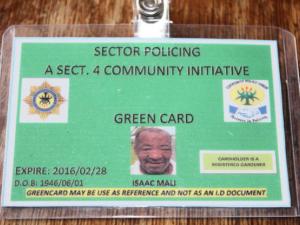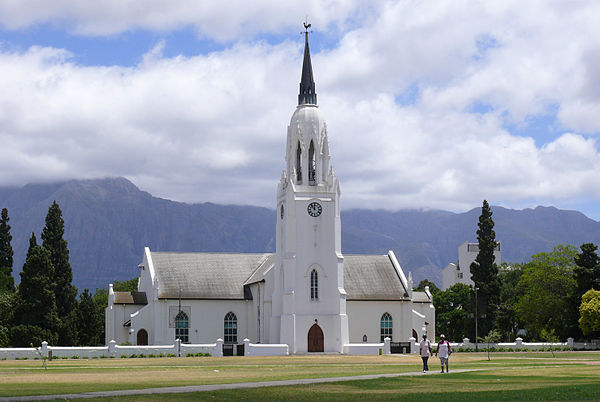Quote of the week
When a foreigner resides among you in your land, do not mistreat them. The foreigner residing among you must be treated as your native-born. Love them as yourself, for you were foreigners in Egypt. I am your God – Leviticus 19:33-34.
Consequently, you are no longer foreigners and strangers, but fellow citizens with God’s people and also members of his household, built on the foundation of the apostles and prophets, with Christ Jesus himself as the chief cornerstone. In him the whole building is joined together and rises to become a holy temple in the Lord. And in him you too are being built together to become a dwelling in which God lives by his Spirit – Ephesians 2:19-22.
Christian Bible
Welcome to Worcester – and apartheid 2015 style
If you are poor and black and live in South Africa (especially in a rural town), you do not enjoy the same rights that the rest of us take for granted. Sometimes state agencies – including the police – conspire to reinforce your second-class status, supposedly to protect the economic privileges of the “white” middle class, but in fact to reinforce the overall domination of “white” middle class people over “black” poor people. Welcome to apartheid, 2015 style.
If you live in the overwhelmingly “white” suburbs of Worcester in the Western Cape, you might well think of your town as idyllic. You might be one of the residents who on Sundays attend the handsome, whitewashed Dutch Reformed church (known as the “Moederkerk”), its spire prettily set against the silhouette of the Hexriver mountains.
You might be one of those who unironically pray to the Dutch Reformed God who reportedly said that “it is easier for a camel to go through the eye of a needle, than for a rich man to enter the kingdom of God”.
Then you might stroll home from church dressed in your Sunday best, content and happy that “your” streets are being kept free of the majority of poor “black” people by the police service of the very government you despise and mock.
This is so because in Worcester the community policing forum – with the full support of the South African Police Service – introduced a “green card” system to regulate the comings and goings of poor black people in town in order to cater to the racist fears of overwhelmingly “white” residents. As Norman Jooste, who works as a gardener for one of the middle class families, explains:
Most gardeners want a card because residents don’t trust you if you don’t have one. I haven’t been asked by police for a green card, but where I went to ask by white people for work, they asked for it and if you don’t have it, they call the police. If you tell the police you do work in the area, they will go to your employer to confirm it. Those who don’t work in the area are asked to leave.
In other words, many “white” people in Worcester won’t give you a job if you do not carry the “green card” because they harbour racist fears. If you are poor and “black” and do not work in the “white” area, the police will harass you and demand that you leave the area. You are viewed as a potential criminal because you are poor and “black” merely because you are poor and “black”. You can “prove” that you do not conform to this racist stereotype, if you carry a dompas, also known as a “green card”.
Sergeant Julian Plaatjies confirmed that the cards are given to people who work or want to work in certain neighbourhoods, after a spike in break-ins and thefts. “Initially it was only for gardeners but people have approached us to extend it to domestic workers and to then call it a pink card.”
I am not making this up.
Now, middle class “white” people who live in Worcester do not carry “green cards”. They are not assumed to be criminals involved in “break-ins and thefts” who can only prove their honesty by carrying a “green card”. Only poor “black” people are assumed to be inherently criminal and are required to carry a “green card” as a prerequisite for employment in the predominantly “white” suburbs.
This is obviously unconstitutional and illegal.
First, the practice infringes on the right to freedom of movement, which is guaranteed by section 21 of the Constitution. Section 21(3) states that “[e]very citizen has the right to enter, to remain in and to reside anywhere in, the Republic”. Where you are required to carry a “green card” in order to move freely and without fear of being harassed or branded as a criminal in public streets, while others are not required to do so, you are being denied your basic right to dignity.
The public streets do not belong to the residents of a neighbourhood – no matter what the Tim Osrin’s of the world might believe. They belong to all of us. Not the members of the policing forum, nor the police, or the members of the neighbourhood watch, or the members of a private security company are allowed to harass you or to tell you that you have to “move on” and may not walk freely through the public streets of a neighbourhood.
(Incidentally, please do ignore the traffic cones sometimes placed by companies in public streets to “reserve” parking for their clients. They have no legal right to do so as they have no right to annexe public spaces for private use.)
Second, the practice infringes on section 22 of the Constitution which states that “[e]very citizen has the right to choose their trade, occupation or profession freely.” There is no law that authorizes a policing forum to impose direct or indirect conditions on the employment of poor “black” people in a specific neighbourhood.
In fact, by requiring poor “black” people to carry a “green card” before they would be employed, “white” middle class homeowners are in breach of the provisions of the Employment Equity Act. It is not and can never legally be an inherent requirement for a job that you should carry a “green card” which turns you into a second class citizen.
What must be clear is that making the employment of poor “black” people in a neighbourhood dependent on the carrying of a green card is racist. It stereotypes poor “black” people as potential criminals.
To my knowledge, the Johannesburg Stock Exchange (JSC) has not required everyone who looks like Brett Kebble to wear a “green card” before they could enter the JSC because of fears of criminality by Kebble lookalikes (despite the fact that Kebble stole far more money from shareholders than any person in Worcester ever will). Nor has anyone required all CEO’s of large construction companies (and those who look like them – basically all balding “white” men in grey shoes) to wear “green cards”, despite the fact that these gentlemen colluded to rob taxpayers of billions of Rand in the run up to the soccer world cup.
Because it’s racist it is also discriminatory and thus in breach of the relevant provisions of the Promotion of Equality and Prevention of Unfair Discrimination Act (PEPUDA). PEPUDA makes clear that discrimination occurs when any policy, law, rule, practice, condition or situation directly or indirectly imposes burdens, obligations or disadvantage on; or withholds benefits, opportunities or advantages from, any person based on race, gender, sex, pregnancy, marital status, ethnic or social origin, colour, sexual orientation, age, disability, religion, conscience, belief, culture, language and birth.
Here the burden to carry a green card in order to get a job and (depending on who you believe) to be able to move freely in a neighbourhood is imposed either directly because those targeted are “black”, or indirectly because they are poor but overwhelmingly or exclusively “black”.
Unfortunately, some South Africans are unaware of the jurisprudence of the South African Constitutional Court, the Kenyan Supreme Court, the Canadian Supreme Court, the European Court of Human Rights and every other major human rights institution (bar the US Supreme Court – if one can still call that court a human rights institution), and have not read the basic texts written over the past 60 years on equality law. Because they do not know that they do not have a basic knowledge of discrimination law, they cannot grasp the basic fact that a determination on whether different treatment constitutes discrimination (unfair discrimination in South African terminology) depends on power relations and context.
Mindlessly shouting slogans that were in vogue a 100 years ago (when most “Western” nations prohibited women from voting and endorsed the most egregious forms of racial discrimination), they say that any different treatment based on race is racist. It is not. What is required is to ask how the different treatment would impact on different people, given their relative social and economic power and status in society.
It is for this reason that PEPUDA – following the Constitution – does not prohibit discrimination, but unfair discrimination. In terms of section 14 several factors must be taken into account when determining whether discrimination is fair or unfair.
These factors include: whether the discrimination impairs or is likely to impair human dignity; the position of the complainant in society and whether he or she suffers from patterns of disadvantage or belongs to a group that suffers from such patterns of disadvantage; the nature and extent of the discrimination; whether the discrimination is systemic in nature; whether the discrimination has a legitimate purpose; and whether the different treatment is aimed at accommodating diversity or rather to impose or police dominant norms that exclude some from opportunities and benefits.
If you are poor and “black” you already suffer from patterns of disadvantage. (If you are middle class and “white”, you do not.) Moreover, as the Constitution Court stated in Hoffmann v SAA prejudice can never justify discrimination. Therefore, if you are poor and “black” and living in a small town in the Western Cape, and an extra burden is imposed on you in order to get a job or to move freely on the assumption that you are a potential criminal because of your race, you are being unfairly discriminated against in conflict with PEPUDA.
Sadly, some “white” residents of Worcester (as well as some “black” Police officers who have internalised the racism of the economically dominant group), will not admit to this obvious fact.
I wonder whether the dominee of the Dutch Reformed Church in Worcester will dare to tell the racists in his congregation this basic truth.
BACK TO TOP



